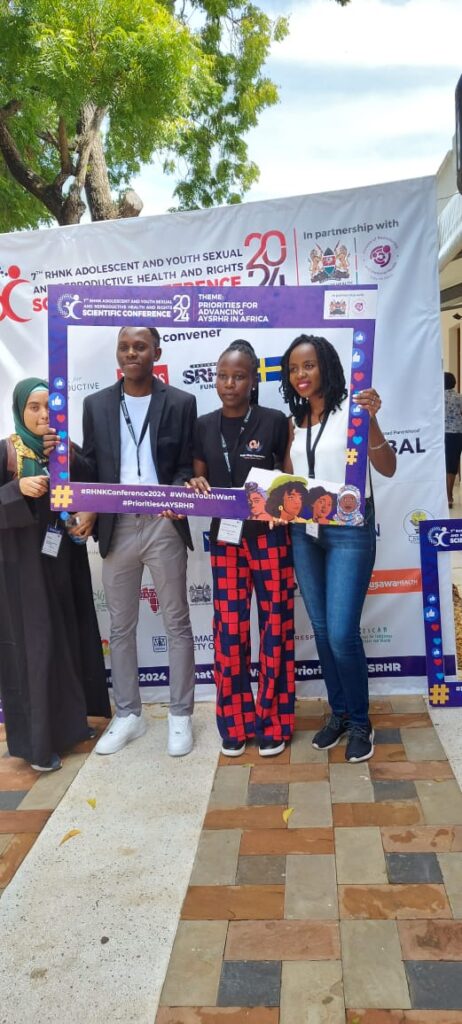Sexual and Reproductive Health and Rights (SRHR) are essential aspects of overall wellbeing, yet deaf adolescents and young people often face unique challenges in accessing accurate and comprehensive SRHR information. Caregivers and parents play a crucial role in bridging this gap, providing the knowledge and support necessary for deaf youth to make informed decisions about their health.
During the 7th RHNK scientific conference 2024 held in Mombasa, our team member presented an abstract on the above. Key findings from the activities we have been having with deaf adolescents with support from Nairobits Trust include:
1. Creating SRHR resources that are accessible and tailored to the needs of deaf adolescents

is fundamental. This includes:
Utilizing images, videos, and other visual tools to convey information effectively, ensuring that SRHR sessions and materials are interpreted in sign language and simplifying complex medical and health terminology to make it understandable for young people.
2. Equipping parents with the right tools and knowledge is critical. This involves:
Offering workshops and resources to educate parents on SRHR topics, teaching parents how to discuss sensitive topics openly and effectively with their children and providing parents with accessible SRHR materials that they can use to educate their children at home.
3. Integrating SRHR education into the regular curriculum and discussions for deaf adolescents promotes inclusivity and normalization. This can be achieved by:
Implementing SRHR education programs within schools that cater to deaf students, encouraging regular conversations about SRHR at home and in educational settings and facilitating peer-led discussions where deaf adolescents can share experiences and learn from each other.
4. Building a supportive network is vital for fostering an environment where deaf young people feel comfortable seeking information and help. This network includes:
Parents, guardians, and family members who are equipped with the knowledge to support SRHR education, teachers and school staff who are trained to provide inclusive and accessible SRHR information and medical professionals who understand the unique needs of deaf adolescents and can communicate effectively.
The role of caregivers in shaping the SRHR understanding of deaf adolescents cannot be overstated. By empowering caregivers through training and resources, we ensure that deaf youth receive accurate and comprehensive information. This empowerment leads to:
– Informed Decisions.
– Increased Confidence.
– Better Health Outcomes.
As an organization, we continue to ensure that adolescents and young people in all their diversities, are able to access correct SRHR information and quality services. By embracing these strategies, we can make a meaningful impact on the lives of deaf adolescents, helping them navigate their sexual and reproductive health with confidence and informed understanding.
